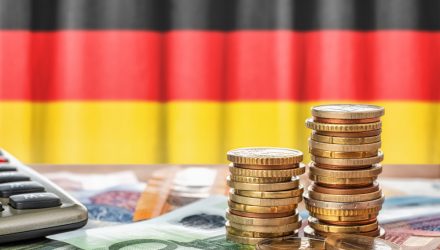The rate of inflation might be heading higher in Germany, but getting single country ETF exposure to the European Union’s largest economy doesn’t have to be an expensive affair.
At a 0.20% expense ratio, the Global X DAX Germany ETF (DAX) falls 26 basis points below the categorical average. Meanwhile, consumer prices in Germany are heading upward.
“Germany’s annual consumer price inflation accelerated to a fresh 13-year high in August, data showed on Monday, underlining growing price pressures as Europe’s largest economy recovers from the pandemic and companies struggle with supply shortages,” a Reuters article said.
“Consumer prices, harmonized to make them comparable with inflation data from other European Union countries (HICP), rose 3.4% compared with 3.1% in July, preliminary figures from the Federal Statistics Office showed,” the article added further.
As for the fund, DAX seeks to provide investment results that closely correspond generally to the price and yield performance of the DAX® Index. The fund invests at least 80% of its total assets in the securities of the underlying index and in American Depositary Receipts (ADRs) and Global Depositary Receipts (“GDRs”) based on the securities in the underlying index.
The index tracks the segment of the largest and most actively traded companies — known as blue chips — on the German equities market. Overall, DAX gives investors:
- Efficient access: DAX offers access to 30 of the largest and most liquid publicly traded companies in Germany, spanning a wide range of economic sectors.
- Targeted exposure: The fund provides targeted exposure to Germany, the largest economy in Europe by GDP.
- Low-cost access: DAX’s net expense ratio is just 0.20%
Challenges Ahead for New Government
This fall, Chancellor Angela Merkel will be leaving her position after 16 years in office. The new government installed later this year will face three primary challenges according to Goldman Sachs: climate change, an aging population, and trade frictions.
“We see Germany exposed to a number of medium-term challenges, related to the missed structural opportunities during the Merkel years,” Goldman analysts said in a CNBC article.
“The next government faces a balancing act between achieving the country’s ambitious climate goals and reaping the economic benefits from the green transition,” the analysts added further.
The changing political landscape will certainly be something to watch. As such, DAX is certainly a fund to keep on investors’ watch lists for the rest of the year.
For more news, information, and strategy, visit the Thematic Investing Channel.


